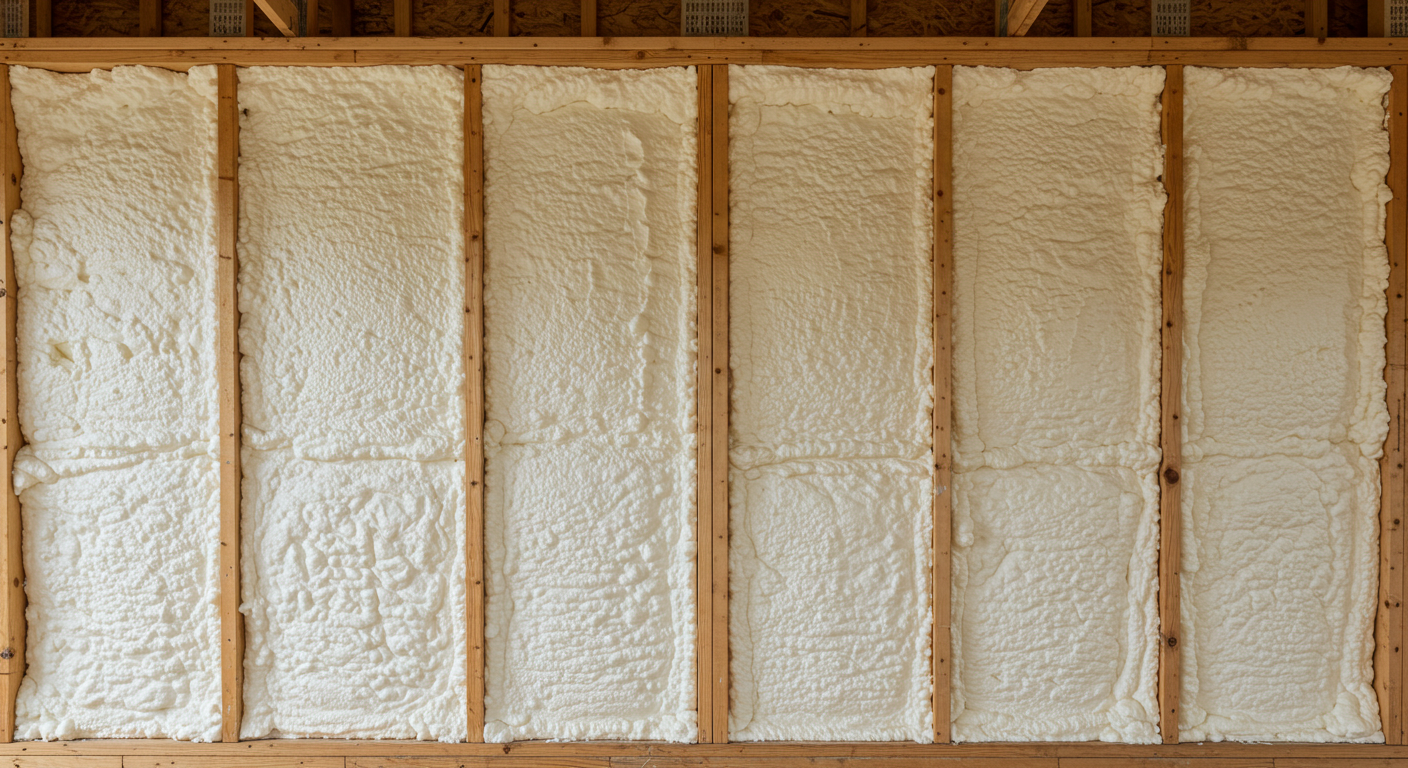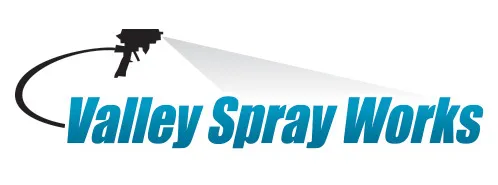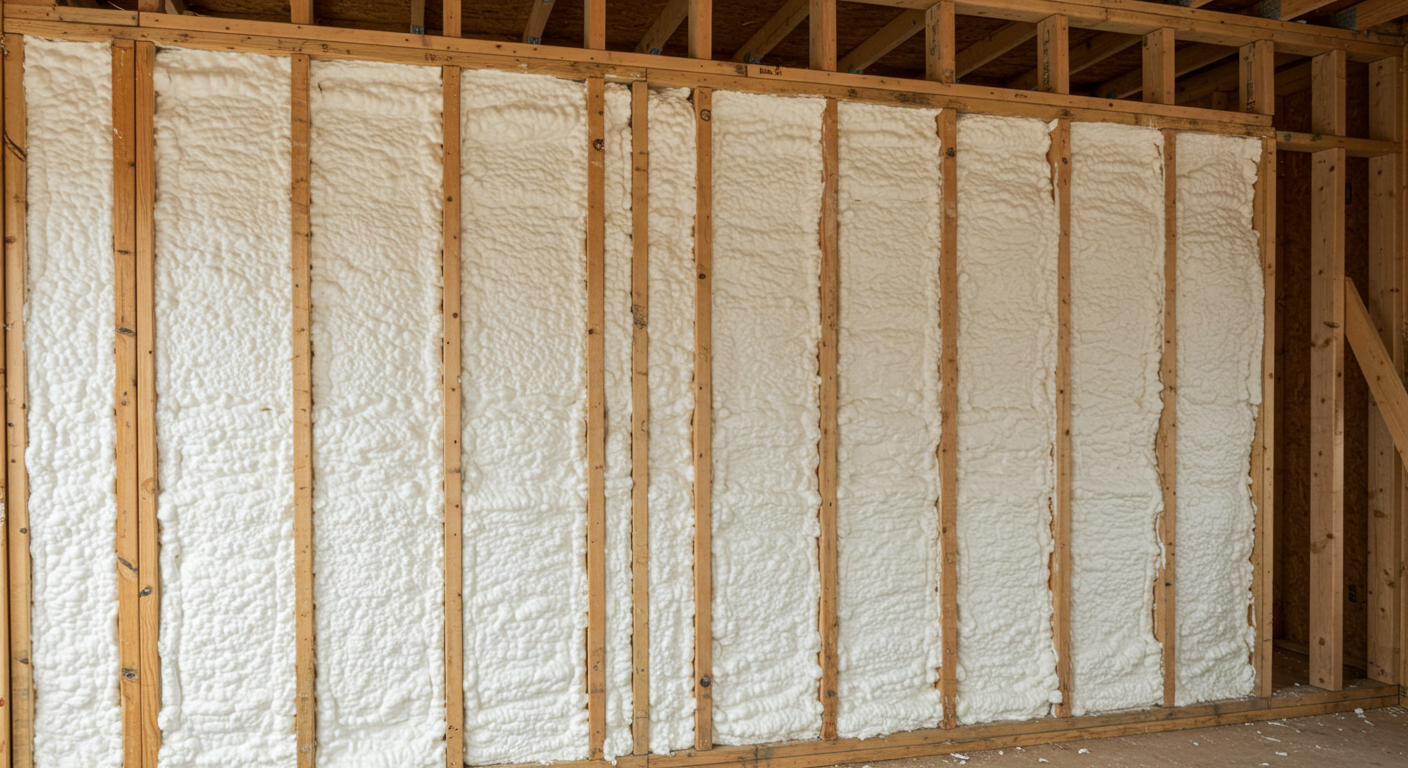Spray foam insulation offers measurable environmental advantages for homeowners in Glenns Ferry, ID. The high-efficiency thermal seal minimizes energy waste and reduces the carbon load from HVAC usage, especially in Idaho’s semi-arid climate with cold winters and hot summers. Properly applied spray foam reduces seasonal heating and cooling demand by up to 50%.
Installing spray foam in residential buildings reduces the dependency on fossil-fuel-powered heating and cooling systems. This translates into lower greenhouse gas emissions and more consistent indoor comfort. Long-term environmental benefits include fewer raw materials consumed for replacement, minimized landfill contributions, and reduced air leakage, which collectively lower a home’s lifetime energy footprint. For expert installation that maximizes these benefits, trust Valley Spray Works.
This article provides a full breakdown of how spray foam insulation contributes to environmental sustainability using technical data, climate-specific insights, and field-tested experience.
How Spray Foam Insulation Improves Home Efficiency
Superior Air Sealing
Spray foam creates an airtight seal that prevents uncontrolled airflow through walls, attics, and floors. This directly reduces HVAC system strain and energy consumption.
Bonus Tip: In Glenns Ferry homes with older framing or balloon-frame construction, retrofitting closed-cell spray foam between joists can resolve long-standing air leakage without major structural changes.
Moisture Control
Idaho’s dry climate still sees seasonal rain and snow. Spray foam resists water absorption and acts as a barrier to moisture-driven mold growth.
Long-Term Durability
Unlike batt or blown-in insulation, spray foam doesn’t sag or shift. Its adhesion to framing ensures consistent performance over decades, reducing the need for replacements.
Comparison of Insulation Types
| Feature | Open-Cell Spray Foam | Closed-Cell Spray Foam | Fiberglass Batts | Blown-In Cellulose |
|---|---|---|---|---|
| R-Value per Inch | 3.5 | 6.0–7.0 | 3.0–3.7 | 3.2–3.8 |
| Air Sealing | High | Very High | Low | Moderate |
| Moisture Resistance | Low | High | Low | Moderate |
| Application in Tight Spaces | Good | Excellent | Poor | Good |
| Longevity | 20+ years | 30+ years | 10–15 years | 15–20 years |
| Environmental Impact | Moderate | Low | High | Moderate |
Technical Specifications
| Specification | Open-Cell Foam | Closed-Cell Foam |
|---|---|---|
| Typical R-Value (per inch) | ~3.5 | ~6.5 |
| Density | 0.5 lbs/ft³ | 2.0 lbs/ft³ |
| Vapor Permeability | High | Low |
| Water Absorption Rate | Higher | Very Low |
| Sound Dampening | Excellent | Moderate |
| Application Temperature Range | 40°F to 120°F | 40°F to 120°F |
Regional Performance Insights
In Glenns Ferry, seasonal extremes put strain on traditional insulation. Summer highs above 90°F and winter lows below 20°F cause high HVAC usage. Spray foam’s continuous air barrier reduces the delta between indoor and outdoor temperatures more effectively than other options.
Energy Star data shows homes insulated with spray foam in cold-dry climates like Idaho can save up to 20% more on annual energy costs compared to fiberglass or cellulose (Source: EnergyStar.gov).
Bonus Tip: For unvented attics in Glenns Ferry, apply closed-cell spray foam under roof decks to prevent ice damming in winter and reduce heat gain in summer.
Things to Consider Before Making a Decision
- Wall or attic access: Spray foam requires open framing or drilled access. Plan accordingly for retrofit projects.
- Budget range: Closed-cell foam is more expensive upfront but offers higher energy savings over time.
- Building code compliance: Some areas require intumescent coatings over exposed foam for fire safety.
- Climate compatibility: Closed-cell foam suits both cold winters and hot summers typical of Glenns Ferry.
- Installation expertise: Improper mix or application thickness can compromise performance. Hire experienced crews.

Services Provided by Valley Spray Works Relevant to This Topic
- Open-Cell Spray Foam Cost-effective air sealing with strong acoustic insulation.
- Closed-Cell Spray Foam High R-value, structural support, and moisture resistance ideal for Glenns Ferry homes.
- Intumescent Coatings Fire-rated overcoat for exposed spray foam in basements and garages.
- Spray Foam Roof Insulation Helps control attic temperatures and extend roof lifespan.
Common Questions Before Choosing Spray Foam Insulation
Is spray foam worth the upfront cost?
Yes, if you’re planning to stay in the home long enough to benefit from the lower energy bills.
Can I install spray foam myself?
No. Professional application is required to ensure correct mix ratio, curing, and safety.
Does spray foam have any odor or off-gassing issues?
Odor is minimal if mixed correctly. Off-gassing completes within 24 hours.
Is it safe around electrical wiring?
Yes, when installed correctly. Electricians should inspect before final enclosure.
Get Expert Insulation Guidance
For reliable insulation solutions in Glenns Ferry, contact Valley Spray Works. Get detailed advice based on building age, layout, and budget. Reach out via:
Phone: (208) 539-5281 Email: [email protected]
Frequently Asked Questions
How long does spray foam insulation last?
When installed correctly, closed-cell spray foam can last 30 years or more without degrading.
Can spray foam be used in older Glenns Ferry homes?
Yes. It’s often used in retrofits for wall cavities, crawl spaces, and attics with proper prep work.
Does spray foam help with indoor air quality?
Yes. By sealing out outdoor air and allergens, it supports better indoor air quality.
How does Idaho’s climate affect spray foam choice?
Closed-cell is preferred due to its ability to handle wide temperature swings and resist moisture.
Are there rebates for insulation upgrades in Idaho?
Yes. Idaho Power offers incentives for qualifying insulation upgrades. (Source: IdahoPower.com)



